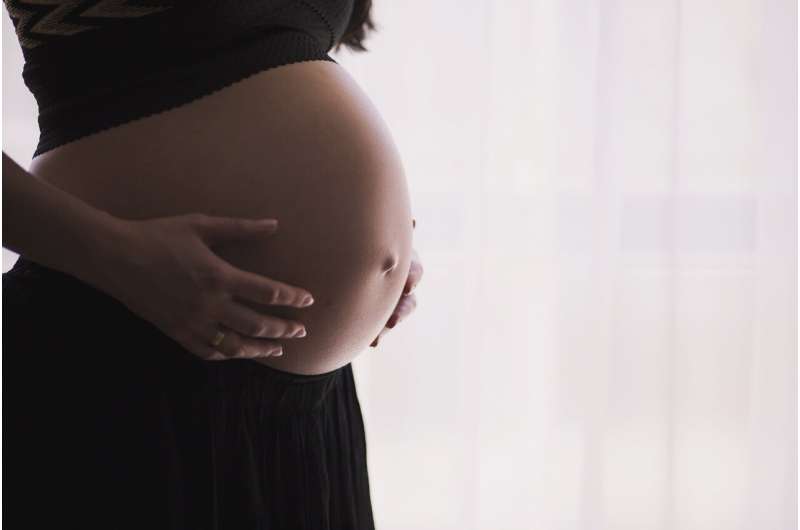This article has been reviewed according to Science X's editorial process and policies. Editors have highlighted the following attributes while ensuring the content's credibility:
fact-checked
peer-reviewed publication
trusted source
proofread
Increased risk of dying during pregnancy for women with epilepsy calls for improved care

Women with epilepsy are four times more likely to die during pregnancy and their babies are 50% more likely to suffer illness or death. These are the findings of a major new study led by Karolinska Institutet and published in JAMA Neurology. The researchers believe that better care of women before, during and after pregnancy can reduce the risks.
Women with epilepsy who become pregnant are a well-known risk situation. Many epilepsy medications can cause birth defects while stopping medication during pregnancy dramatically increases the risk of seizures, which can have serious consequences for both the mother and the fetus.
But exactly how big the risks have been is less clear. Randomized clinical trials are ruled out for ethical reasons and observational studies need a very large population base to quantify the relatively rare events.
An international research group, led by Karolinska Institutet, has now compiled register data from the five Nordic countries on more than 4.5 million pregnancies between 1997 and 2017. Among these were more than 35,000 pregnancies where the mother had epilepsy.
"This is a uniquely large dataset that has enabled us to look at very unusual outcomes," says first author Neda Razaz, associate professor of epidemiology and researcher at the Department of Medicine, Solna at Karolinska Institutet. She continues:
"The main findings are that women with epilepsy are four times more likely to die during pregnancy and that during the first 42 days after delivery, the children of women with epilepsy have a 50% higher risk of illness or death."
The absolute numbers are small
However, she points out that although the relative risk figures are high, the absolute numbers are small and the vast majority of pregnancies for women with epilepsy go well. For example, the fourfold increased risk of death in a pregnant woman means that the risk rises from five deaths per 100,000 pregnancies to 23 deaths per 100,000 pregnancies.
"Ninety-six percent of all women with epilepsy in our study had a completely uncomplicated pregnancy with a normal outcome. I don't want our results to scare women away from having children," says Neda Razaz.
Compared to women with epilepsy who were not treated with anti-epileptic drugs, both the mother treated with anti-epileptic drugs and her baby had higher risks, which probably reflects the fact that women receiving drug treatment have a more severe form of epilepsy, says Razaz.
"For many women with epilepsy, stopping the drugs if they become pregnant is not an option," she says.
The researchers conclude that the risks can be reduced for both the women and the children through better care before, during, and after pregnancy.
"Women with epilepsy should be treated at clinics with special expertise that can optimize their treatment even before they become pregnant. Then they should be specifically monitored both during and after pregnancy," says Neda Razaz.
More information: Neda Razaz et al, Risk of Perinatal and Maternal Morbidity and Mortality Among Pregnant Women With Epilepsy, JAMA Neurology (2024). DOI: 10.1001/jamaneurol.2024.2375



















